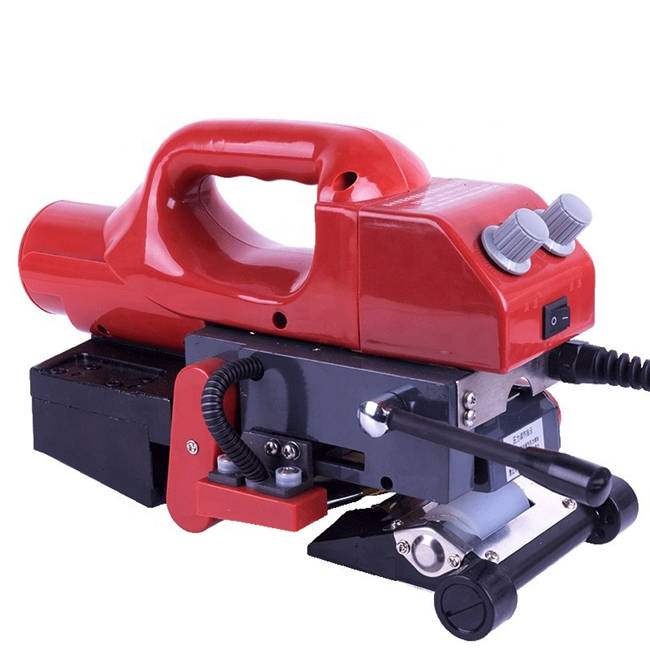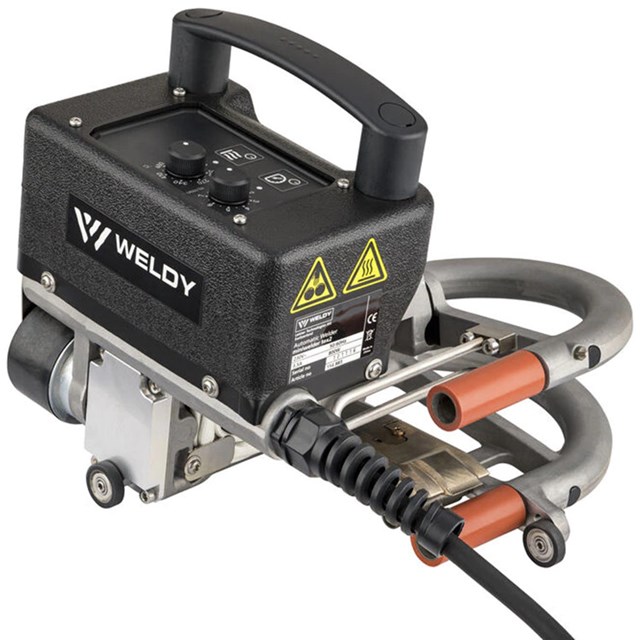A welding machine is an essential tool used in various industries to join materials,
typically metals or thermoplastics, by using heat to melt the parts together and allowing them to cool, resulting in fusion.
Welding machines are widely used in construction, manufacturing, automotive repair, and many other fields where strong, durable joints are required.
Versatility: Welding machines can handle a variety of materials, including steel, aluminum, stainless steel, and other metals. They are also capable of welding different thicknesses, making them suitable for a wide range of applications.
Precision and Control: Modern welding machines come with adjustable settings that allow for precise control over the welding process. This includes control over voltage, current, and wire feed speed, ensuring high-quality welds.

Portability: Many welding machines are designed to be lightweight and portable, making them easy to transport and use in different locations, whether in a workshop or on a construction site.
Efficiency: Advanced welding machines are energy-efficient, reducing power consumption while maintaining high performance. This not only lowers operational costs but also minimizes environmental impact.
Safety Features: Welding machines are equipped with various safety features, such as overload protection, thermal shutdown, and insulated casings, to ensure safe operation and protect the user from potential hazards.
Durability: Built with robust materials, welding machines are designed to withstand harsh working conditions, ensuring long-term reliability and minimal maintenance.

Arc Welding Machines: These include Stick welders (SMAW), MIG welders (GMAW), and TIG welders (GTAW). They use an electric arc to melt the metals at the welding point.
Resistance Welding Machines: These machines use electrical resistance to generate heat and are commonly used for spot welding and seam welding.
Gas Welding Machines: These use a flame produced by burning a mixture of fuel gas and oxygen to melt the metals. Oxy-acetylene welding is a common example.
Laser Welding Machines: Utilizing a highly focused laser beam, these machines offer high precision and are used in applications requiring fine, detailed welds.
Ultrasonic Welding Machines: These use high-frequency ultrasonic acoustic vibrations to create solid-state welds, typically used for plastics and thin metals.
Construction: Welding machines are used to join structural steel, reinforcing bars, and other metal components in buildings and infrastructure projects.
Automotive: They are essential for manufacturing and repairing vehicles, including bodywork, frames, and exhaust systems.
Manufacturing: Welding machines are used in the production of machinery, equipment, and consumer goods.
Shipbuilding: They play a crucial role in the construction and repair of ships and offshore structures.
Aerospace: Precision welding machines are used to manufacture and maintain aircraft components.
Welding machines are indispensable tools in modern industry, offering the ability to create strong, durable joints in a wide range of materials. With advancements in technology, welding machines have become more efficient, precise, and user-friendly, making them suitable for both professional and DIY applications. Whether for heavy industrial use or delicate precision work, there is a welding machine designed to meet the needs of every project.
COMPANY:TAI'AN CITY RUIHENG BUILDING MATERIALS CO., LTD
Contact:Nickle Nie
Tel:008615866038408
Phone:008615866038408
Email:nickle@rhgeos.com
Add:NO.3566 LONGQUAN ROAD,TAI'AN HI-TECH ZONE,SHANDONG PROVINCE,CHINA